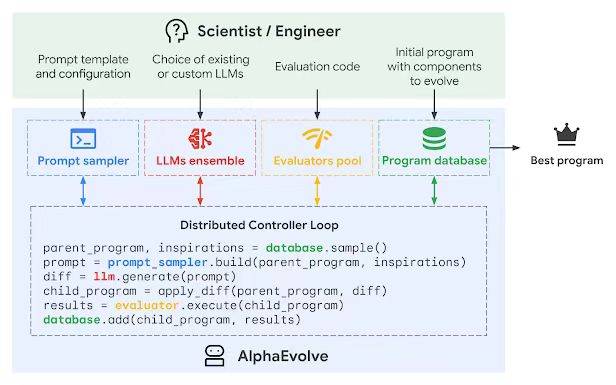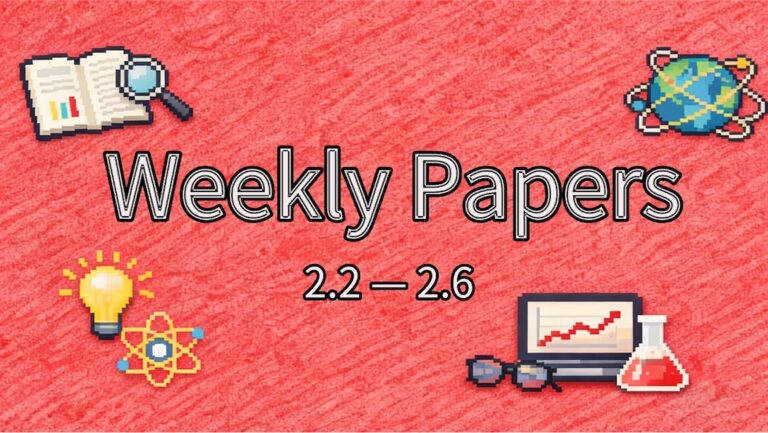Command Palette
Search for a command to run...
Google DeepMind Releases AlphaEvolve, Solving 300-year-old Math Problems and Finding Better Solutions for Nearly 40 Math Problems

Late at night on May 14th, Beijing time, Google DeepMind released a programming AI Agent called AlphaEvolve.It combines the powerful code generation capabilities of large language models with automated evaluators.Able to design and optimize algorithms for some basic and complex problems in mathematics and modern computing.
According to official introduction, AlphaEvolve has improved the efficiency of Google's data centers, chip design and AI training processes. It has also helped design faster matrix multiplication algorithms and found new solutions to some open mathematical problems, showing great potential for wide application in multiple fields.
Specifically, AlphaEvolve uses several of the latest large models in the Gemini series.Its workflow includes generating algorithm codes from language models, verifying and scoring these codes through automated evaluators, and finally implementing an evolutionary mechanism in the algorithm database to continuously optimize the generated solutions.

In practical applications,AlphaEvolve is able to go beyond single functions, evolve entire code bases and develop more complex algorithms.It broadens the scope of problem-solving ideas through the Gemini Flash model, while the Gemini Pro model provides in-depth insights. The two work together to propose multiple computer programs and realize the encoding of algorithmic solutions. The system's workflow includes automatically generating new programs from the language model, and then the evaluator objectively and quantitatively evaluates its performance to screen out the best quality and efficient code.
According to the official introduction, AlphaEvolve has discovered a simple but very efficient heuristic method to help Google's large-scale cluster management system Borg more efficiently schedule Google's huge data centers. The solution has been put into production for more than a year and has continuously restored an average of 0.7% of global computing resources.
also,AlphaEvolve also proposed a new Verilog rewrite method that effectively removes unnecessary bits in matrix multiplication circuits.This improvement has been incorporated into Google's upcoming Tensor Processing Unit (TPU), which will boost chip performance.
In terms of model training, AlphaEvolve optimizes the matrix multiplication operations in the Gemini architecture.It increased its speed by 23% and shortened the training time by 1%. In addition, it significantly reduced the engineering time required for kernel optimization from weeks to days, greatly improving the productivity of researchers.
It is worth mentioning thatAlphaEvolve also demonstrated strong capabilities on mathematical problems.For example, in the discovery of matrix multiplication algorithms, it found a new algorithm that only needs 48 scalar multiplications to complete 4×4 complex matrix multiplication, which is better than the old algorithm proposed by Strassen in 1969. At the same time,AlphaEvolve has also been applied to more than 50 open problems in mathematics.In nearly 75% cases, it rediscovered state-of-the-art solutions, and in 20% cases, it improved upon the best known solutions, such as improving the efficiency of solving the "kissing number problem," a problem that has plagued mathematicians for more than 300 years.
In summary, AlphaEvolve has a wide range of applications, not limited to mathematics and computing.Google plans to work with the People + AI Research team toDevelop a user-friendly interface and open it to academic users through the Early Access Program. In the long run, AlphaEvolve's potential lies in that it can be applied to any problem that can be described and automatically verified by an algorithm, and is expected to achieve more breakthroughs in materials science, drug discovery, sustainability and other fields.








